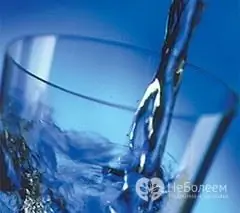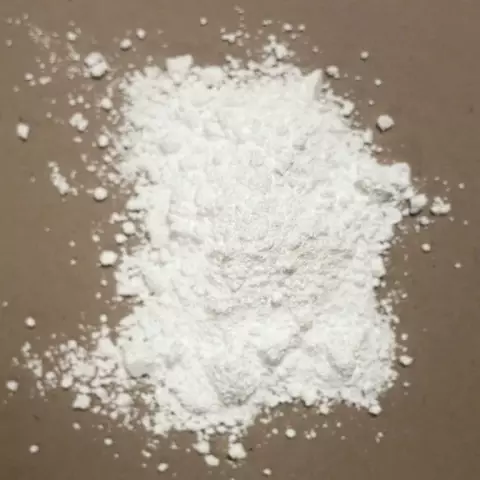- Author Rachel Wainwright wainwright@abchealthonline.com.
- Public 2023-12-15 07:39.
- Last modified 2025-11-02 20:14.
The value of water for the human body

The importance of water for humans can hardly be overestimated, since each of us knows that the body of an adult is 70% water, which is present in all his tissues. Water is the basis for all metabolic processes in the human body. Penetrating into a person, it carries out the function of enriching cells with nutrients and cleansing them of toxins. She is directly involved in respiratory and thermoregulation processes. Water provides moisture to the joint lubrication, mucous membranes and the eyeball. Thus, the unconditionality of the meaning of water for a person becomes obvious.
Experts confirm that the importance of water for humans is beyond doubt, since 80% of all human diseases are caused by banal dehydration. Therefore, you should drink a sufficient amount of clean water daily. Precisely pure, since only pure water is able to effectively perform or maintain all transport and metabolic functions in the body. Drinking tap water has long been strongly discouraged, so it is better to buy water with a balanced mineral composition in pharmacies or draw it from wells using high-quality water filters to clean it. Pure drinking water activates the protective functions of the body, it helps to thin the blood and lower blood pressure, helps fight fatigue, stress and overweight,stimulates the work of the cardiovascular system and the circulatory system, increases the body's resistance to various diseases. This shows how important water is for humans.

The value of water for humans can be actualized, depending on the climate, age, health status, diet, intensity of work and other factors. The daily norm of water for an average adult living in our country is 2.5-3 liters per day, since the human body loses on average about two liters of water per day. If in the vital organs there is a shortage of any substance that ensures its functioning, the body spontaneously redistributes the available resources. From less significant areas, he transfers them to the most vital, such as the brain, liver and heart, lungs and kidneys. Usually, joints, skin and muscles become forced donors, therefore they are the first to be subjected to rapid wear,premature aging and vulnerability.
Found a mistake in the text? Select it and press Ctrl + Enter.






